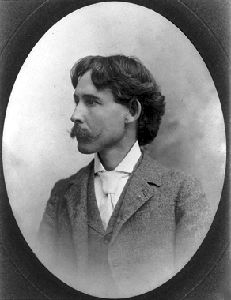Andrew Suknaski
Andrew Suknaski, poet (born at Wood Mountain, SK 30 July 1942; died at Moose Jaw, SK 3 May 2012). Born to a Ukranian father and Polish mother on a small homestead near Wood Mountain, Saskatchewan in 1942, poet Andrew Suknaski has maintained a strong link to both the ethnic and Western Canadian identity in his poetry throughout his career. Often his works are oral and vernacular, following the rhythms of a regional dialect and an ethnic voice. His poetry recreates the liveliness of the spoken word in the Prairie West, as he grapples with the past of his own immigrant ancestors and the past of the Aboriginal communities (See Indigenous People: Plains) that predated his forbearers on the landscape. His poetry is often both a celebration and a lament for the history and heritage of Western Canada.
Suknaski first learned English when he began grade school. Later, he attended the University of Victoria, the Montreal Museum of Fine Arts School of Art and Design, Notre Dame University (Nelson, BC), the University of British Columbia, Simon Fraser University, and the Kootenay School of Art, from which he earned his only postsecondary diploma, in fine art.
Suknaski began publishing many of his earliest poems in chapbook and pamphlet form (See Literary Magazines in English) in the 1960s and founded Elfin Plot, an underground, independent magazine out of Vancouver, which featured a number of his early poems. He experimented with concrete poetry and interwove visual art and text in a variety of innovative ways. His more mature poetry first appeared in the anthology Storm Warning (1971), edited by Al Purdy.
Throughout the early 1970s, Suknaski's poems were published in limited numbers by a variety of independent presses, such as Vancouver's Blewointment Press, which produced Suknaski's book of poetry and illustrations, Old Mill, in 1972, and Anak Press, out of his home town of Wood Mountain, which published Y the evolution into Ruenz that same year; Suicide Notes: Book I (1973), the first version of Wood Mountain Poems (1974); Blind Man's House (1975); and Writing on Stone: Poem Drawings 1966 - 76 (1976). Throughout his career, Suknaski continued to publish poetry in short pamphlets and chapbooks, often accompanied by photographs.
In Leaving (1974), Andrew Suknaski explores sentiments of love and loss. Leaving Wood Mountain (1975) turns the focus to his childhood home as he begins to express a genuine socio-cultural reexamination of home as an imaginative and historical construct. Octomi: poems (1976) is a book of children's illustrated poetry, which was followed by On First Looking Down from Lions Gate Bridge (1976). A reworking of his 1974 chapbook of the same name, it involves prose-like and free verse musings inspired by its Vancouver setting, evoking a mock-mythic sentiment.
It was not until the publication of his first mainstream poetry anthology, Wood Mountain Poems (1976), edited by Al Purdy, that Andrew Suknaski became a major voice of Western Canadian writing, emphasizing questions of home and identity that faced (and still face) many of the settlers to the Canadian west (See Regionalism in Literature). The tension between aboriginal rights, mythology and culture and those of the homesteading settlers is voiced in a manner that combines unrefined language, humour, tender nostalgia and a deep-seated respect for both traditions.
Suknaski was writer-in-residence at St. John's College, University of Manitoba, from 1977 until 1979. His next major anthology, The Ghosts Call You Poor (1978) earned him the Canadian Authors Association Poetry Award and in 1978 he was the subject of the film Wood Mountain Poems, by Harvey Spak for the National Film Board of Canada. The next work, East of Myloona (1979) is a chapbook compilation of poetry about the people of Northern Canada, filled with Suknaski's own illustrations. His next major collection, the Name of Narid (1981), edited by Dennis Cooley, combines poetry about his Canadian home while simultaneously reflecting on political suffering experienced in other countries, particularly the suffering of Ukrainians within the Soviet Union, attempting to address some of the transcontinental issues relating to his own heritage. It was followed by two other ambitious projects, Montage for an Interstellar Cry (1982) - a long poem, which raises questions of time and space through pseudo-prophetic poetry - and Silk Trail (1985), which blends a number of ethnic influences, embracing the very essence of multiculturalism. Stephen Scobie selected a wide range of Suknaski's works to compile The Land They Gave Away: New and Selected Poems (1982), and Rob McLennan's There Is No Mountain: Selected Poems of Andrew Suknaski was published in 2007.
Suknaski stopped writing in the 1980s and settled in Saskatchewan, but he continues to be known for poetry that evokes the prophetic and the mythic through a grounded use of colloquial diction, humour and localized geographical references, thus voicing and validating the "commonplace" found in historical reality, and the voice of the "ethnic" settler to the Canadian West.

 Share on Facebook
Share on Facebook Share on X
Share on X Share by Email
Share by Email Share on Google Classroom
Share on Google Classroom


